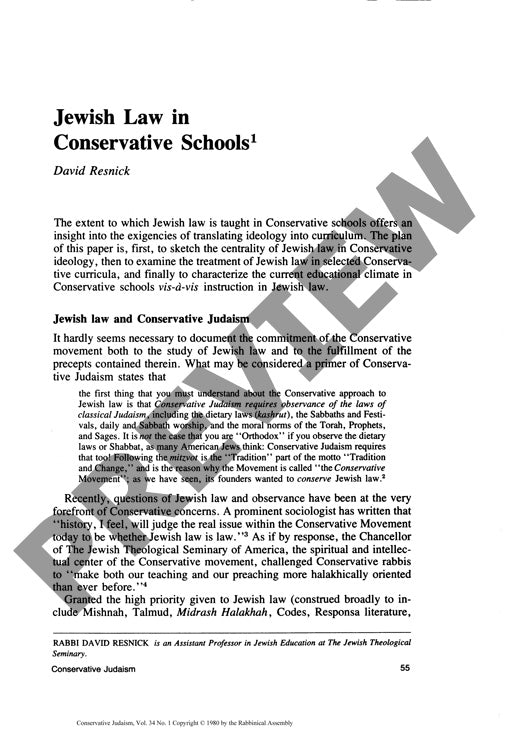Jewish Law in Conservative Schools
Couldn't load pickup availability
A stark disconnect exists between Conservative Judaism's ideological commitment to Jewish law and its actual classroom implementation in supplementary schools. To understand this gap, an analysis was conducted of two major Conservative curricula: the United Synagogue's "A curriculum for the afternoon Jewish school" and the Melton Research Center's "Proposal for an afternoon school curriculum." The investigation, framed by Tyler's four commonplaces (milieu, teachers, subject matter, and students), reveals that both curricula largely sidestep halakhic instruction. The Melton proposal makes no explicit mention of Jewish law instruction, while the United Synagogue curriculum relegates it to optional branches with superficial treatment. Multiple barriers impede meaningful change: societal resistance to legal studies, teachers lacking adequate preparation, and the inherent pedagogical challenges of halakhic literature. The resulting educational landscape produces curricula that are "more Karaite than rabbinic," fundamentally failing to transmit what serves as the backbone of classical Conservative Judaism. This curricular void threatens to undermine the movement's ideological foundations and raises critical questions about the future of Conservative Jewish education.

More Information
-
Physical Description
-
Publication Information
Published 1980
ISBN
-
Publication Credits
David Resnick

